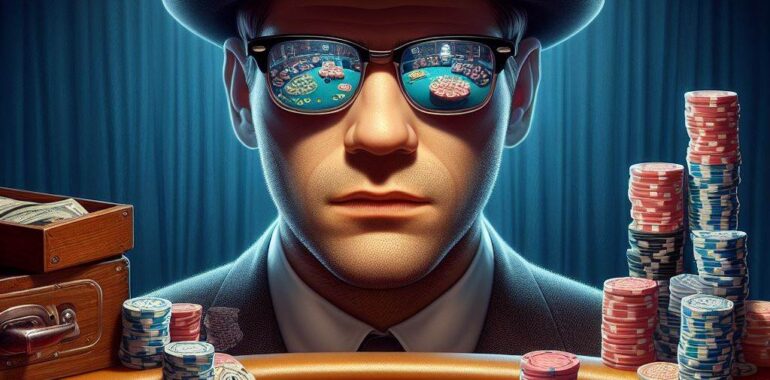The Psychology of Casino Poker: Reading the Table Like a Pro

The Psychology of Casino Poker: Reading the Table Like a Pro
Poker is not just a game of cards;Table Like a Pro it’s a complex psychological battle taking place on the green felt of the casino tables. Understanding the nuanced psychological dynamics can transform an average player into a formidable force. “The Psychology of Casino Poker: Reading the Table Like a Pro” delves into the mental strategies that underpin the game, offering insights into how to decode opponents’ behavior, manage one’s own psychological state, and leverage psychological insights for success.
Understanding Opponent Behavior
The first step in mastering the psychology of casino poker is learning to read your opponents.Table Like a Pro This doesn’t mean looking for exaggerated “tells” as popularized in movies but paying attention to subtler cues such as betting patterns, hand gestures, timing, and even conversational hints.
Betting Patterns: A player’s betting behavior can reveal much about their hand. Are they aggressive with strong hands, or do they prefer to slow-play? Recognizing these patterns can guide your decision-making process.
Physical Cues: While experienced players may control obvious tells, involuntary responses like pulse, hand tremors, or even eye dilation under stress can provide clues.
Verbal Cues: The way a player talks or changes their conversation style during a game can indicate confidence or lack thereof.
Managing Your Psychological State
Your mental state plays a crucial role in your performance at the poker table. Staying calm, focused, and emotionally detached from the outcomes of individual hands is crucial for making rational decisions.
Emotional Control: Avoid “tilt” — a state of emotional frustration that can lead to poor decision-making. Recognizing the onset of tilt and having strategies to manage it, such as taking a break, is vital.
Confidence: Projecting confidence can influence how opponents play against you. However, it’s essential to base this confidence on skill and strategy rather than bravado.
Psychological Warfare
Poker is as much about the bets you make as it is about the psychological pressure you apply to your opponents. Effective psychological strategies can force opponents into mistakes or misjudgments.
Bluffing and Semi-Bluffing: These are classic examples of psychological strategy. The key is not just in deceiving opponents about the strength of your hand but doing so in a way that fits into your overall betting pattern and table image.
Table Image: The perception opponents have of your play style can be manipulated to your advantage. For example, playing tight and conservative early on can make a well-timed bluff more effective later.
Adapting to the Table Dynamics
Every poker table has its unique dynamics, influenced by the mix of personalities, playing styles, and the current state of the game. Adapting your strategy to these dynamics is crucial for success.
Identifying the Weaknesses: Every player has weaknesses, whether it’s a tendency to fold under pressure or play too many hands. Identifying and exploiting these weaknesses is a key psychological strategy.
Changing Gears: Altering your play style unpredictably can confuse and unsettle opponents, making it harder for them to develop effective counter-strategies.
Conclusion: Mastering the Mental Game
“The Psychology of Casino Poker: Reading the Table Like a Pro” underscores that poker is a game won not just with the cards in your hand but with the mind. By developing an acute awareness of the psychological underpinnings of poker, players can gain a significant edge. This includes reading opponents accurately, managing personal emotional states, and applying psychological pressure strategically. Like any skill, these psychological strategies require practice, patience, and continual refinement. With these tools, players can elevate their game from merely competent to truly formidable, commanding the table with an understanding that goes far beyond the physical cards dealt.